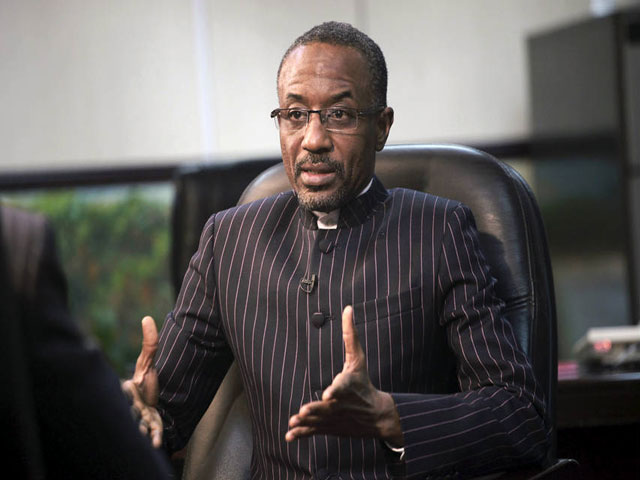Central Bank of Nigeria (CBN) Governor, Sanusi Lamido Sanusi, has said about N6billion lost to banks by customers has been recovered by the apex bank.
At the yearly Isaac Moghalu Foundation (IMOF) Lecture and Symposium, entitled: Women In Leadership, The Education Pipeline, Which held yesterday in Abuja, the esteemed CBN Governor said the feat was recorded by the CBN’s Director of Consumer Protection, Hajia Umma Aminu Dutse, whom he described as “ruthless and hard working”.
He went further to say: “The director of Consumer Protection has recovered over N6 billion in the last one year for customers that were cheated by banks. She takes sides with banks’ customers, even when I plead with her to be gentle with the banks, she is very ruthless.”
He put so much emphasis on women at the top of their careers and those with political ambitions, accusing them of not doing enough for their likes.
“Not many women help other women and this is really a big problem. So, we need to be careful about just thinking that if you have a group of people in top management level, things will be different”, he said.
He followed by saying, “Ask the women in power what they do for other women who are voiceless, you may be the Minister of Finance or of Housing, many women cannot understand what we are saying here.”
Sanusi lamented on the low literacy level of girls in the North, saying in Jigawa State, for example, girls’ completion rate in school is as low as 7.6 per cent.
He explained that out of 100 girls, less than eight complete secondary school, adding that 70.8 per cent of girls in the Northwest between 20 and 29 years, cannot read when compared to nine per cent in the West.
He was puzzled on how the country can be built properly when 93 per cent of the girls in the most populous region do not complete secondary school education.
He criticised female ministers who spend time in government without any tangible proof of their stewardship for the women folk.
“If you spend four years in the cabinet and you cannot say after four years what you did for women during the period, shame on you!” he declared.
Sanusi came clean by showing his desire to see more women in positions of authority. “We want many skirts out there, and we want these skirts not to be limited to the top of the board, because for every one woman that makes it up there to the board, there are probably up to 5 or 10million women in the villages who don’t have access to education,” he said.
The CBN governor pushed ahead to state his unhappiness with the practice of credit processing in the country which he condemned as being “gender biased.”
According to Him, “if you have a credit process that says you need tangible collateral or landed property in a society where women do not generally hold titles to land, you have already cut them off because men own the land and houses and for you (women) to even approach a bank for a loan is almost impossible.”
As a result, the CBN, he said, has resorted to forcing “the banks to look at those credit policies and get them to answer, how do you get credit to that group.”
“It is also wrong to promote men simply because they put in more hours at work whereas women have to go home by 5pm to attend to their families and as result get bypassed for promotion often. They are able to put in these hours simply because they are men.”
To promote gender balance in the banking sector, Sanusi disclosed it has been “agreed that by 2014, at least 30 per cent of the board seats in banks will be held by women and at least 40 per cent of senior management positions will be held by women.”
Not holding back, he further stated that “this year we require that all banks’ when they publish their statement of accounts, must publish its gender positions, even the Central Bank will not be exempted from this. There is a lot of public pressure on these institutions that fall behind to make them to catch up.
“In the 50 years of the CBN’s existence, only four women had made it to Director level and this was a period when we had 10,000 staff, today we have seven or eight female directors, this comes from a conscious policy of looking for qualified women to take these positions.”
The foundation’s executive director, Mrs Maryanne Moghalu also added that the lecture will examine how far we have come in developing women leaders across Nigeria, why it is important to have women leadership as part of a broad agenda, as part of our social and economic agenda; how we can ensure this goal in a sustainable manner by ensuring that women are trained and ready for leadership roles in the public, private and non profit sectors and that they are sent to such roles in their own merits and not just the values of voters.



Leave a Reply